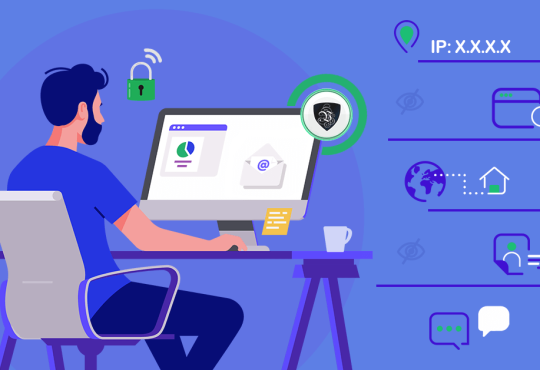Diversity, Equity, and Inclusion in Remote Work: The Role of D&I Tools

Diversity, equity, and inclusion (D&I) have become important topics in the workplace.
There’s been a lot of talks lately about diversity, equity, and inclusion (D&I) in the workplace and for good reason. Companies that foster D&I reap the benefits of a more creative and productive workforce. When employees feel like they can be themselves at work, they are more likely to be productive and innovative. But what about remote work? Does remote work promote diversity? How Remote Work Can Promote Diversity, Equity, and Inclusion?
This is especially important in remote work environments, where employees may not always see each other face-to-face. In this blog post, we’ll discuss how D&I principles can be used in remote work settings to create a more diverse and inclusive environment. We’ll also look at some of the best D&I tools for remote work teams.
Diversity, equity, and inclusion (D&I) are important principles that every company should uphold.
These principles ensure that everyone in the workplace feels welcome, respected, and valued. By creating a D&I strategy, companies can set the tone for how they want their workplace to look and feel.
There are a number of diversity and inclusion tools that companies can use to promote D&I in the workplace.
Some of these tools include:
– Unconscious bias training: This type of education training helps employees to identify their own biases and understand how they can impact others.
– Diversity resource groups: These groups provide support and resources for employees from underrepresented groups.
– Inclusive language training: This type of training helps employees to use inclusive language in the workplace.
By using these tools, companies can create a more diverse and inclusive workplace. However, it’s important to remember that diversity and inclusion are not just about compliance or meeting quotas. Rather, they should be about creating a workplace where everyone feels respected and valued. When diversity and inclusion are incorporated into the company culture, employees will feel more engaged and productive.
Diversity, Equity, and Inclusion in the Remote Workplace
Does remote work promote diversity? The answer is yes. Remote work can help to promote diversity by allowing employees to work from anywhere in the world. This can create a more diverse and inclusive workforce. Additionally, using d&i tools in the remote workplace can help to ensure that all employees feel welcome and respected.
Just because employees are working remotely doesn’t mean that diversity, equity, and inclusion should take a backseat. In fact, there are several things that remote work teams can do to promote diversity and inclusion.
One of the most important things that remote work teams can do is to develop equity diversity and inclusion principles. These principles should be based on the company’s values and should be applied to all aspects of the remote work environment.
The next step is to create a diversity and inclusion policy. This policy should outline how the company plans to promote diversity and inclusion in the remote workplace. It should also include a section on how to handle discrimination and harassment complaints.
Finally, remote work teams can use D&I tools to create a more diverse and inclusive environment. Some of the best D&I tools for remote work teams include diversity training, employee resource groups, and diversity dashboards.
Key principles
Some of the key principles of D&I include equity, diversity, and inclusion. Equity refers to the idea that everyone should be treated fairly and equally. Diversity refers to the variety of people and experiences within a workplace. Inclusion refers to the act of welcoming and incorporating diverse individuals into the workplace.
All of these principles are important in the remote workplace. When employees feel like they are part of a diverse and inclusive team, they are more likely to be productive and innovative. Using d&i tools in the remote workplace can help to create a more diverse and inclusive environment for all employees.
One of the benefits of remote work is that it can promote diversity, equity, and inclusion (D&I) in the workplace. This is because remote work allows employees to work from anywhere in the world, which can create a more diverse and inclusive workforce. Additionally, using d&i tools in the remote workplace can help to ensure that all employees feel welcome and respected.
By promoting diversity, equity, and inclusion in the remote workplace, companies can create a more engaged and productive workforce. Additionally, they can also avoid potential compliance issues.
There are a number of diversity and inclusion tools that companies can use to promote diversity, equity, and inclusion in the remote workplace. These tools can help companies to identify unconscious bias, build inclusive teams, and create equitable work environments.
D&I tools
There are a number of diversity and inclusion (D&I) tools that can be used in the remote workplace. Some of these tools include things like diversity training, equity audits, and inclusion workshops. These tools can help to create a more diverse and inclusive remote workplace by teaching employees about the importance of diversity, equity, and inclusion. Additionally, they can help to identify any areas where there may be a lack of diversity or equity in the workplace.
Diversity training
One of the most important diversity and inclusion tools is diversity training. Diversity training can help employees to understand the importance of diversity, equity, and inclusion in the workplace. Additionally, it can help to identify any areas where there may be a lack of diversity or equity in the workplace. Equity audits
Another important D&I tool is equity audits. Equity audits can help to identify any areas of the workplace where there may be a lack of diversity or equity. Inclusion workshops
Inclusion workshops are another important diversity and inclusion tool. These workshops can help employees to understand the importance of diversity, equity, and inclusion in the workplace. Additionally, they can help to identify any areas where there may be a lack of diversity or equity in the workplace.
By using these D&I tools, companies can create a more diverse and inclusive remote workplace. Additionally, they can help to avoid potential compliance issues.
Diversity training is one of the most important diversity and inclusion (D&I) tools that can be used in the workplace. Diversity training can help employees to learn about the importance of diversity, equity, and inclusion in the workplace. Additionally, diversity training can help to identify any areas where there may be a lack of diversity in the workplace.
What D&I tools are important for
D&I tools can also help to create a more inclusive environment in the workplace. For example, D&I tools can be used to create an employee resource group (ERG). ERGs are groups of employees who share a common interest or identity. ERGs can help to promote diversity, equity, and inclusion in the workplace by providing a support network for employees. Additionally, ERGs can help to increase awareness of diversity issues in the workplace.
D&I tools can also be used to create policies and procedures that promote diversity, equity, and inclusion in the workplace. For example, D&I tools can be used to create a diversity policy. A diversity policy is a document that outlines a company’s commitment to diversity, equity, and inclusion. Diversity policies can help to ensure that all employees are treated fairly and with respect. Additionally, diversity policies can help to create a more diverse workplace.
D&I tools can also be used to monitor progress towards diversity, equity, and inclusion goals. For example, D&I tools can be used to create diversity metrics. Diversity metrics are measures that are used to track progress towards diversity, equity, and inclusion goals. Diversity metrics can help companies to identify any areas where there is a lack of diversity, equity, or inclusion. Additionally, diversity metrics can help companies to monitor their progress towards diversity, equity, and inclusion goals.
D&I tools are important in the remote workplace because they can help to promote diversity, equity, and inclusion. Additionally, D&I tools can help to create a more inclusive environment for all employees.




